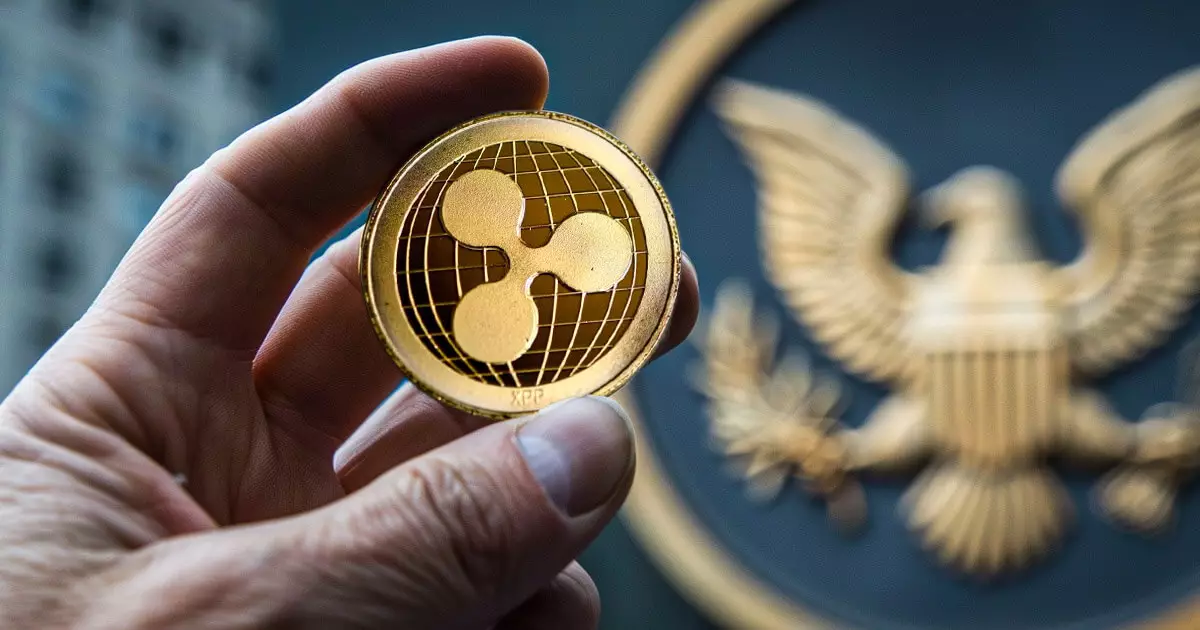The litigation between Ripple Labs and the U.S. Securities and Exchange Commission (SEC) has persisted since December 2020, creating significant ripples in the cryptocurrency landscape. The recent announcement by Ripple to file a notice of cross-appeal in response to the SEC’s own appeal marks a critical moment in this ongoing legal battle. This article seeks to delve into the ramifications of these appeals, the reactions from both parties, and the broader implications for the crypto industry at large.
The SEC initiated its lawsuit against Ripple, alleging that the company had conducted an unlawful offering of unregistered securities through its XRP token, amounting to a staggering $1.3 billion. Over the ensuing years of litigation, the case captivated the attention of industry stakeholders, regulatory agencies, and investors alike. The pivotal ruling came in July 2023 when Judge Analisa Torres of the U.S. District Court for the Southern District of New York differentiated between Ripple’s institutional and programmatic sales of XRP. While she found the former to be in violation of securities laws, the latter—which involved sales to retail investors—was deemed compliant with existing regulations.
This division within the ruling became a foundation for both parties’ appeals. The SEC was dissatisfied with the court’s ruling that XRP sales to retail investors did not constitute securities offerings. Consequently, the agency filed an appeal aimed at overturning this part of the decision. Ripple’s cross-appeal, filed on October 10, challenges not only the SEC’s claims but also the judgment imposing a $125 million civil penalty on Ripple for institutional sales, which although smaller than the $2 billion originally sought, still represents a substantial burden for the company.
The response from Ripple’s leadership has been one of both defiance and resilience. Stuart Alderoty, Ripple’s Chief Legal Officer, articulated a determination to leave no stone unturned, further emphasizing the necessity of the cross-appeal. His comments underscore a critical sentiment within Ripple’s camp—the notion that the SEC’s regulatory stance is misguided and far-reaching, potentially impacting not just Ripple but the entire crypto ecosystem. Alderoty’s assertiveness indicates a strategic move to not only contest the penalties but also to reinforce the legitimacy of XRP as a non-security asset.
Similarly, Ripple’s CEO, Brad Garlinghouse, voiced strong criticisms of the SEC’s approach, framing it as a detrimental strategy aimed at creating chaos within the industry rather than providing clarity. His comments signal an ongoing frustration among crypto businesses concerning regulatory ambiguity. Garlinghouse’s remarks highlight a key sentiment shared by many in the industry—that the regulatory framework surrounding cryptocurrencies often stifles innovation rather than fostering it.
The outcomes of these appeals are likely to hinge not only on the legal arguments presented but also on broader regulatory perceptions regarding cryptocurrencies. The merging of both appeals into a singular case may prolong the legal process, keeping uncertainty alive in the crypto market. This prolonged uncertainty can have a chilling effect on investment and innovation as firms await decisive regulatory clarity.
The battle between Ripple and the SEC further signifies a pivotal moment for the cryptocurrency sector, wherein the definition of digital assets continues to be contested in courtrooms. If Ripple ultimately prevails, it may set a precedent that could reshape how cryptocurrencies are classified within the legal framework of securities, thus potentially paving the way for a more favorable regulatory environment.
Conversely, should the SEC succeed in overturning the court’s ruling, the repercussions could be severe, not just for Ripple but also for numerous other crypto entities that may find themselves under increased regulatory scrutiny. The outcome of these appeals may very well be determinative of how cryptocurrencies are fundamentally understood and managed within the financial system in the United States.
As Ripple and the SEC continue their legal tussle, the stakes have never been higher for the cryptocurrency industry. With both parties firmly entrenched in their positions, the outcome of the cross-appeal could reverberate throughout the sector for years to come. While Ripple seeks to solidify its standing and fend off substantial penalties, the SEC is keen to reestablish its authority in an evolving landscape. What remains clear is that this ongoing legal battle serves as a critical touchpoint for understanding the future of cryptocurrency regulation and its potential impact on innovation and investment. The crypto community will undoubtedly be watching closely as the appeals unfold, hoping for a resolution that brings clarity rather than chaos.















Leave a Reply